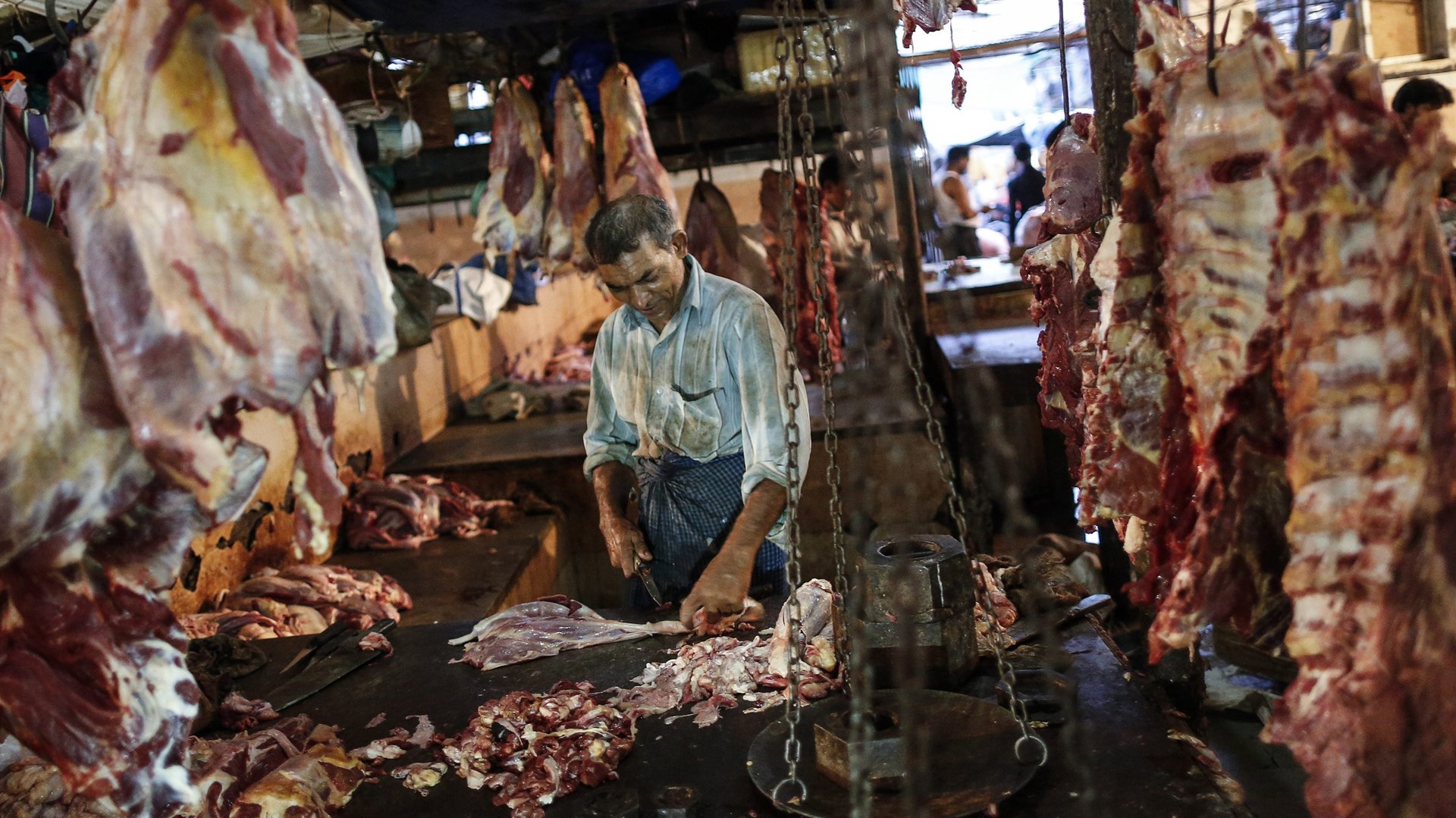Beef, pork, and nationalism: What’s the recipe for a true Hindu or Muslim in India?
Indians consider dietary restrictions as a top priority when it comes to religion.


Indians consider dietary restrictions as a top priority when it comes to religion.
Almost three-quarters of Hindu respondents in a new Pew Research Center survey said a person who eats beef cannot be Hindu.
“While Hindus are roughly split over whether a person can be Hindu if they do not believe in god, never go to temple or never pray, there is more consensus that eating beef, disrespecting India or celebrating Eid disqualify someone from being Hindu,” Pew noted.
The survey was based on face-to-face interviews with nearly 30,000 adults in 17 languages between late 2019 and early 2020.
Although there have been references in Hindu mythology of Ancient Hindus and gods eating meat, the brouhaha over food habits has intensified in the last decade since the Bharatiya Janata Party with its hardline Hindutva ideology came into power in 2014.
In 2018, a Bharatiya Janata Party (BJP) member of parliament said the southern state of Kerala was being punished with floods for butchering calves. In the last year, BJP-ruled states Uttar Pradesh, Gujarat, Karnataka, and Madhya Pradesh have tightened anti-cow slaughter laws, and Assam is deliberating the same.
Although it’s important to note Hindus aren’t the only ones with staunch beliefs.
Muslims reject pork-eaters
Muslims who participated in the survey weren’t all that different. Consuming meat barred in their religious doctrines was blasphemous to more people than not believing in god or visiting a place of worship.
Sikhs and Jains disqualify meat-eaters
While Hindus and Muslims don’t eat certain meats, Sikhs and Jains are traditionally complete vegetarians. Among them, too, eating meat was the biggest dealbreaker when it came to disqualifying someone from their religion.